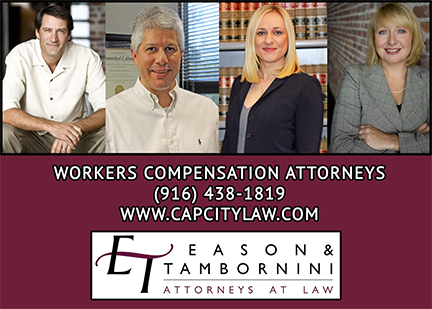People regularly call us up wanting to know if they can sue their employer when they were injured on the job for their employers negligence. The answer to that is generally no. But, there are five exceptions to what is called “workers compensation exclusivity.”
Learn more about our Sacramento Workers’ Compensation Attorney Services.
However, it’s important to understand why we have workers compensation exclusivity. Before the workers compensation system was in place, if you were injured on the job through your own negligence or a co-employee’s negligence or even a freak accident where a machine failed, you had no rights and remedies; you were simply sent home. You probably lost your job and you had no benefits for medical treatment or otherwise.
 The workers compensation statutory scheme was intended to replace that with a no-fault system. And in the no-fault system it doesn’t matter who was at fault in causing the accident or the injury, instead it focuses on making sure that you’ve received benefits to go forward. The exchange for the no-fault system was that individuals gave up the right to sue for pain and suffering.
The workers compensation statutory scheme was intended to replace that with a no-fault system. And in the no-fault system it doesn’t matter who was at fault in causing the accident or the injury, instead it focuses on making sure that you’ve received benefits to go forward. The exchange for the no-fault system was that individuals gave up the right to sue for pain and suffering.
There are five basic exceptions to the workers compensation no-fault system where you do have the right to sue potentially your employer and there’s an additional remedy called serious and willful that we will discuss during this video.
The first exception to the Workers Compensation Exclusivity Rule is for the intentional acts of your employer. Obviously if your employer was to assault you, physically punch you, strike you & things like that, that’s not negligence. That’s an intentional assault and that’s that’s an exception to the workers compensation exclusivity rule.
The second major exception to the workers compensation exclusivity rule is when your employer fails to provide workers compensation insurance. This sometimes happens when they misclassify you as an independent contractor or they just simply don’t carry insurance. And the legislative concept behind that is that the employer doesn’t live up to its end of the bargain of maintaining an insurance policy and you should not be limited in your right to sue and thus you can go into state court.
The third major exception to the workers compensation exclusivity rule has to do with fraudulent concealment by your employer. If your employer knows that you’ve been exposed to a hazardous chemical and are suffering an injury, but they don’t tell you and in fact they hide it from you, then you may have the right to sue in state court for that fraudulent concealment.
Another major exception to the workers compensation exclusivity has to do with a dual capacity. And what that means is that while you might work for an employer, you can’t sue your employer for injuries that arise out of the course of your employment. You can sue your employee for injuries that rise out of something other than your employment. For example, if you were to work at a department store, and you’re injured while working at the department store, you have no right to sue that department store. But if you’re back in that department store on your day off and you slipped and fell, then you would have the right to sue your employer because it doesn’t arise out of your employment, it just happens to be a claim against your employer.
The fifth exception to the workers compensation exclusivity rule has to do with what’s called a power press. It’s a very unique exception but if you’re the operator of a power press where the machine is being used to create materials, such as the manufacturing industry, and something’s been done to that machine to make it less safe, such as removing a guard, then you may have the ability to sue in state court and outside the workers compensation system.
The workers compensation system is intended to be the exclusive remedy for injuries on the job. It takes away the employees requirement to prove fault, but also guarantees that they’re going to have a rights to benefits. We went over five basic exceptions to that and there are a few other very small ones, but those are the major five exceptions.
However, just because you don’t have the ability to sue in state court for negligence doesn’t mean that you’re not without extra benefits in the workers compensation system if your employers conduct was particularly bad. For example, there is a provision for serious and willful penalties. It’s an enhanced penalty provision for claims against your employer when they’ve acted with a reckless disregard of your safety and/or they violated various OSHA statutes. So just because you can’t sue in state court doesn’t mean you don’t have the right to extra remedies in the workers compensation system.
